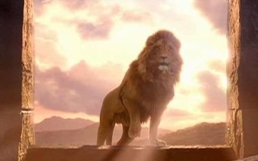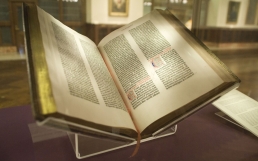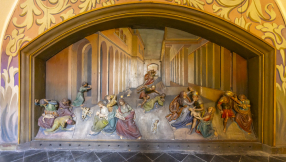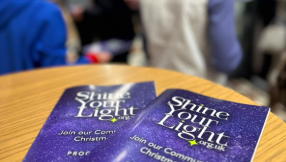John Newton's hymn Amazing Grace has blessed Christians for more than 200 years (he wrote it in 1772). US President Barack Obama memorably sang it at the memorial to the victims of the Charleston killings, and it is sung all over the world.
Its first verse reads: "Amazing grace, how sweet the sound/ That saved a wretch like me/ I once was lost, but now am found/ Was blind, but now I see." It's simple but powerful, expressing total confidence in what God has done for him – rescuing a wicked slaver and violent mocker of Christianity from spiritual darkness.
What we don't always pick up is that the last line of that verse is a direct quotation, from John 9:25. It's part of the story of Jesus healing a man born blind. He makes mud from saliva (a common folk healing practice with which the man would have been familiar) and tells him to go and wash in the pool of Siloam; the man's sight is restored.
Unfortunately, the miracle takes place on the Sabbath, which isn't good enough for the Pharisees. A comical exchange follows in which they try to persuade the man that Jesus couldn't have healed him, because he was a 'sinner' who didn't keep the Law strictly enough. His response is one of the most powerful statements of faith in the New Testament: "Whatever he is a sinner or not, I don't know. One thing I do know. I was blind but now I see!"
The Bible scholar William Barclay tells a story about how, at the turn of the last century, the great agnostic TH Huxley was attending a weekend country house party. He was the Richard Dawkins of his day, a scientist and thinker who was known for making church people look very foolish when they tried to argue with him about things they didn't understand.

On Sunday most of the guests prepared to go to church; Huxley, as was his custom, stayed behind. However, one of the guests was known to have a simple but profound faith. Huxley approached him and said, "Suppose you stay behind and you tell me quite simply what your Christian faith means to you and why you are a Christian."
The man objected, saying that he was no controversialist and that Huxley could demolish his arguments in an instant.
"I don't want to argue with you," said Huxley. "I just want you to tell me simply what this Christ means to you."
The man did as he was asked. When he had finished there were tears in Huxley's eyes. "I would give my right hand if only I could believe that," he said.
There is no Christian 'happy ending'; Huxley never did become a Christian, as far as anyone knows . But what matters is the simple power of the testimony: "One thing I know, I was blind but now I see."
We won't always be able to answer the arguments of people cleverer than we are. We have to guard against being arrogant and assuming we have nothing to learn. We can't assume that our own experiences will convert other people, either. But no one can take away from us what we have felt in our own hearts and known in our own lives: "I once was lost, but now I'm found/ Was blind, but now I see." It's our experience of the transforming power of God that keeps us walking faithfully with him.
Follow @RevMarkWoods on Twitter.

















